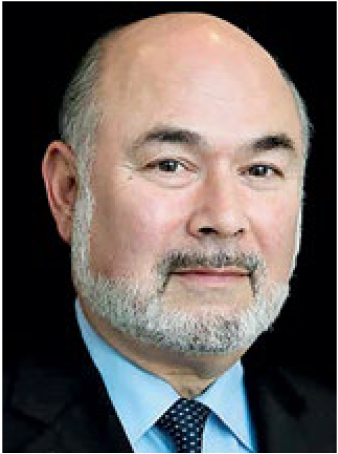 Jonathan Granoff is President of the Global Security Institute, Senior Advisor to the Committee on National Security of the International Law Section of the American Bar Association, and Representative to the United Nations of the World Summits of Nobel Peace Laureates.
Jonathan Granoff is President of the Global Security Institute, Senior Advisor to the Committee on National Security of the International Law Section of the American Bar Association, and Representative to the United Nations of the World Summits of Nobel Peace Laureates.
Humanity is making itself an endangered species. Change is needed. Human security is the direct, accurate and needed framework to generate that change. Continuing without a paradigm change will surely lead to disaster.
This essay is not framed by the daily news cycle perspective but rather seeks to help set a clear north star for international coordination and focus necessary for human survival. We know that the statement, “all men are created equal,” was not an empirical description. When the third President of the United States Thomas Jefferson penned it, men without property, women, indigenous people, and people who had been shipped to North America in slavery were not included. But its implicit guiding principle has become the guide for governance and its significance of immeasurable value. Human security is similarly valuable and needed. Although not noticed yet by the public, in the most sober diplomatic international forums and institutions this need for change is recognized.

Human security does not propose eliminating nations and militaries. For example, military force in defense of the territorial integrity and safety of the people of Ukraine is clearly necessary. However, a disproportionate emphasis on nationalism expressed through military power is not adequate to solve the growing list of global threats that impact everyone’s daily lives.
Expenditures, Doctrines, and Security
The purpose of all our nations is to meet the needs of how people actually live in their daily lives and to achieve that requires organizational arrangements arising from guiding principles that are grounded in today’s science and the values inherent in universal human rights. The ideas that worked fine in the seventeenth century, when the creation of the modern nation emerged to end Europe’s violent social upheavals, have produced a horse and buggy road inadequate for the challenges of today. That road does not necessarily include human rights and the insights of science.







